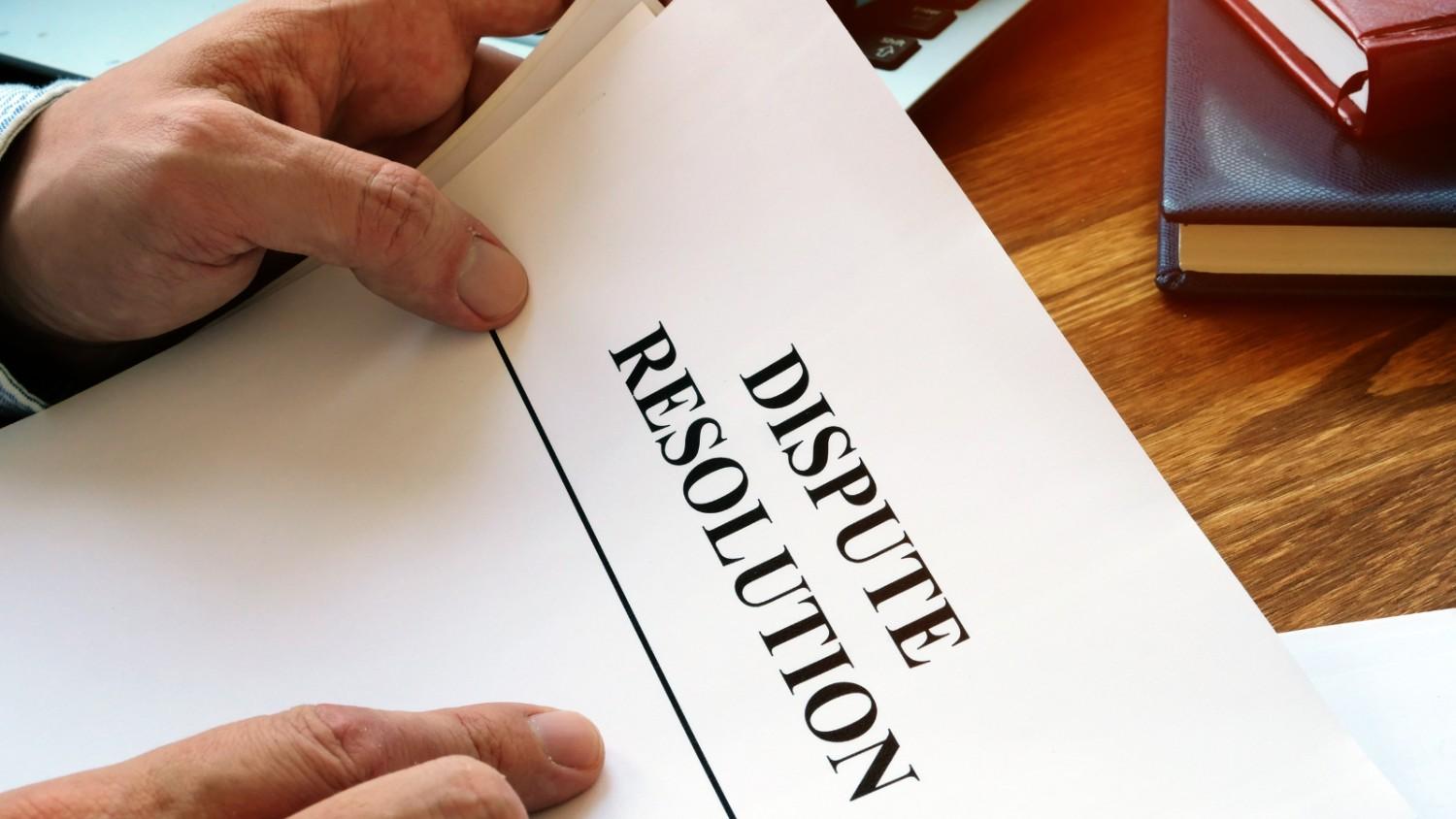
Construction projects can quickly turn from an exciting new venture into a stressful and frustrating experience. From unexpected delays to cost overruns, contractors and homeowners often find themselves at odds.
When issues go unresolved, tensions can escalate, leaving both parties seeking ways to protect their financial interests.
Legal remedies exist to help resolve these disputes, but knowing where to start can be overwhelming. It’s essential to understand what common construction disputes look like and how the law can help.
That’s why in this blog, we’ll explore the typical issues that arise in construction projects and how a trusted business dispute attorney can help solve these challenges.
Whether you’re dealing with faulty workmanship, contract breaches, or payment problems, this guide will provide you with a roadmap. We’ll walk through the common disputes you might face and the legal options available to resolve them efficiently.
Understanding Common Construction Disputes That Lead to Legal Action
Construction disputes are often rooted in misunderstandings or unmet expectations between the parties involved. Disagreements can occur at any stage of a project, from the initial planning phase to the final inspection. These disputes can range from minor issues to major setbacks, and if left unaddressed, they can lead to costly legal battles.
Some of the most common construction disputes that trigger legal action include:
- Breach of Contract: One party fails to meet their obligations, whether it’s completion of work, payment, or compliance with timelines.
- Poor Workmanship: Work that doesn’t meet agreed-upon standards or is not up to code.
- Payment Issues: Disputes over overdue payments or payments for incomplete or subpar work.
- Delays: When projects take longer than expected, it can cause financial strain or operational disruption.
- Defective Materials: When materials do not meet the specified requirements, it can lead to quality issues or safety concerns.
- Scope Changes: Disagreements over changes to the project scope can lead to cost overruns or delays.
- Non-Compliance with Building Codes: Violations of local building regulations can lead to fines and potential project shutdowns.
Construction disputes, if not resolved quickly, can escalate into long-term financial and legal challenges. Addressing issues early with the proper legal tools can save time, money, and reputation.
Knowing the types of disputes you may face and understanding the available remedies is crucial in preventing a renovation nightmare from spiraling out of control.
Legal Remedies Available for Construction Dispute Resolution
When construction disputes arise, legal remedies can help protect your interests and provide a clear path to resolution. These remedies can vary, depending on the nature of the dispute, the contract terms, and the parties involved.
The following sections will explore some of the most common legal avenues, including breach of contract lawsuits, mediation, and insurance claims.
Breach of Contract Lawsuits and Monetary Damages
A breach of contract occurs when one party fails to fulfill their obligations as outlined in the agreement. The elements of a contract, including the scope of work, timeline, and payment terms, are the foundation of these lawsuits. If one party fails to meet its responsibilities, the other party can file a lawsuit to recover damages.
In such cases, a court typically awards monetary compensation for the damages suffered, which may include the cost of completing the project, correcting defects, or covering delays. The amount of damages is based on the direct impact the breach has on the project and may also include additional costs incurred due to the delay.
Filing a breach of contract lawsuit can be an effective remedy for both contractors and homeowners. It holds the responsible party accountable, ensuring that the agreed-upon terms are honored and financial losses are covered.
Mechanics’ Lien Filing and Property Rights Protection
A mechanics lien is a powerful tool for contractors, subcontractors, and suppliers to ensure they get paid for their work. By filing a lien, the individual or company can claim a legal right to the property until payment is made. This lien is filed with the local government and becomes a public record, affecting the property’s title.
The process of filing a mechanics lien can vary by state, but generally, it requires timely filing after work is completed or payment is due. A properly filed lien can help secure payment by making the property owner legally obligated to settle the debt before the lien is removed.
Mechanics’ liens are a strong protection for those involved in construction projects, especially when payments are delayed or withheld. They provide a way to ensure payment without resorting to lengthy litigation or other costly methods.
Small Claims Court vs Superior Court Litigation Options
For minor disputes, small claims court may be the best route to resolve the issue without the high costs associated with a full lawsuit. This option is typically used for cases involving a limited dollar amount, and it’s a more streamlined process. Small claims court is designed to be more accessible, with less paperwork and the ability to represent yourself without an attorney. In California, attorneys are not involved or allowed in small claims.
On the other hand, the superior court is the appropriate venue for more complex or higher-value disputes. This court allows for more detailed legal proceedings, including depositions, expert testimony, and formal discovery. It can take longer and be more expensive, but it provides a more thorough process for resolving complicated issues, or higher dollar values.
Choosing between the small claims court and the superior court depends on the nature and size of the dispute. Homeowners and contractors should assess their specific situation to determine the best legal approach.
Stop Work Orders and Injunctive Relief
In some cases, the court may issue a temporary stop-work order to halt a construction project. This is typically done when there are significant safety concerns, violations of building codes, or a serious dispute over the quality of the work. The order forces the project to cease until the issue is resolved, protecting the rights of the parties involved.
Injunctive relief goes a step further. It can prevent specific actions from taking place, such as stopping the construction of an unauthorized structure or preventing a contractor from abandoning the project. The court may issue an injunction if it determines that a party’s actions are causing irreparable harm.
Both stop work orders and injunctive relief provide immediate relief in disputes that threaten the progress or legality of a construction project. These legal measures can protect property owners and contractors from further damage during the dispute resolution process.
Mediation and Alternative Dispute Resolution Methods
Mediation and other forms of alternative dispute resolution (ADR) provide avenues for resolving disputes without resorting to court proceedings. Mediation, in particular, involves a neutral third party who helps facilitate discussions between the parties to reach a mutually agreeable resolution. The role of mediation in disputes is crucial, as it enables both parties to express their concerns in a less formal setting.
ADR methods, such as mediation or arbitration, are generally quicker and less expensive than traditional litigation. They also preserve the relationships between the parties, which is particularly important in construction disputes where parties often continue working together after the resolution.
While mediation isn’t legally binding unless both parties agree to the terms, it provides an opportunity to resolve issues more collaboratively. For many construction disputes, mediation can be a cost-effective and less adversarial alternative to litigation.
Insurance Claims and Bond Recovery Procedures
Construction projects often involve various types of insurance and bonding to protect against financial loss. Contractors, homeowners, and suppliers may all have insurance policies that cover specific aspects of the project, such as liability, workers’ compensation, or property damage. In the event of a dispute, these policies can be used to recover costs.
Bond recovery procedures are invoked when performance bonds are involved. These bonds ensure that contractors will complete the work as specified. If a contractor fails to meet their obligations, the bond can be claimed to cover the cost of hiring a new contractor to finish the work. Some bonds are filed with the state of California.
Insurance claims and bonds are essential tools for safeguarding all parties involved in a construction project. When a dispute arises, knowing how to leverage these financial protections can help resolve the issue quickly and efficiently.
How Nick Heimlich Law Can Help with Your Construction Dispute
At Nick Heimlich Law, we understand the complexities and frustrations of construction disputes. Whether you’re a homeowner, contractor, or supplier, we provide tailored legal support to help you deal with these challenges.
Our team is dedicated to ensuring that your rights are protected, and we work diligently to resolve disputes promptly and efficiently.
What we can offer is to help you with the following:
- Reviewing contracts and identifying potential issues before they escalate
- Review any filing of mechanics liens and securing property rights
- Representing you in court or arbitration for breach of contract claims
- Assisting with mediation and alternative dispute resolution methods
- Offering advice on insurance claims and bonding recovery procedures
As your reliable business attorney, we aim to provide peace of mind throughout the legal process. You don’t have to face the stress of construction disputes alone. Our expertise ensures that your case is handled with the utmost care and efficiency.
H2: Schedule Your Consultation Today
If you’re facing a construction dispute, it’s time to take action. We’re here to guide you through the legal process and help you achieve a fair resolution.
Contact us today to schedule your consultation and get the support you need. Call now and let us help you resolve your construction dispute with confidence.




